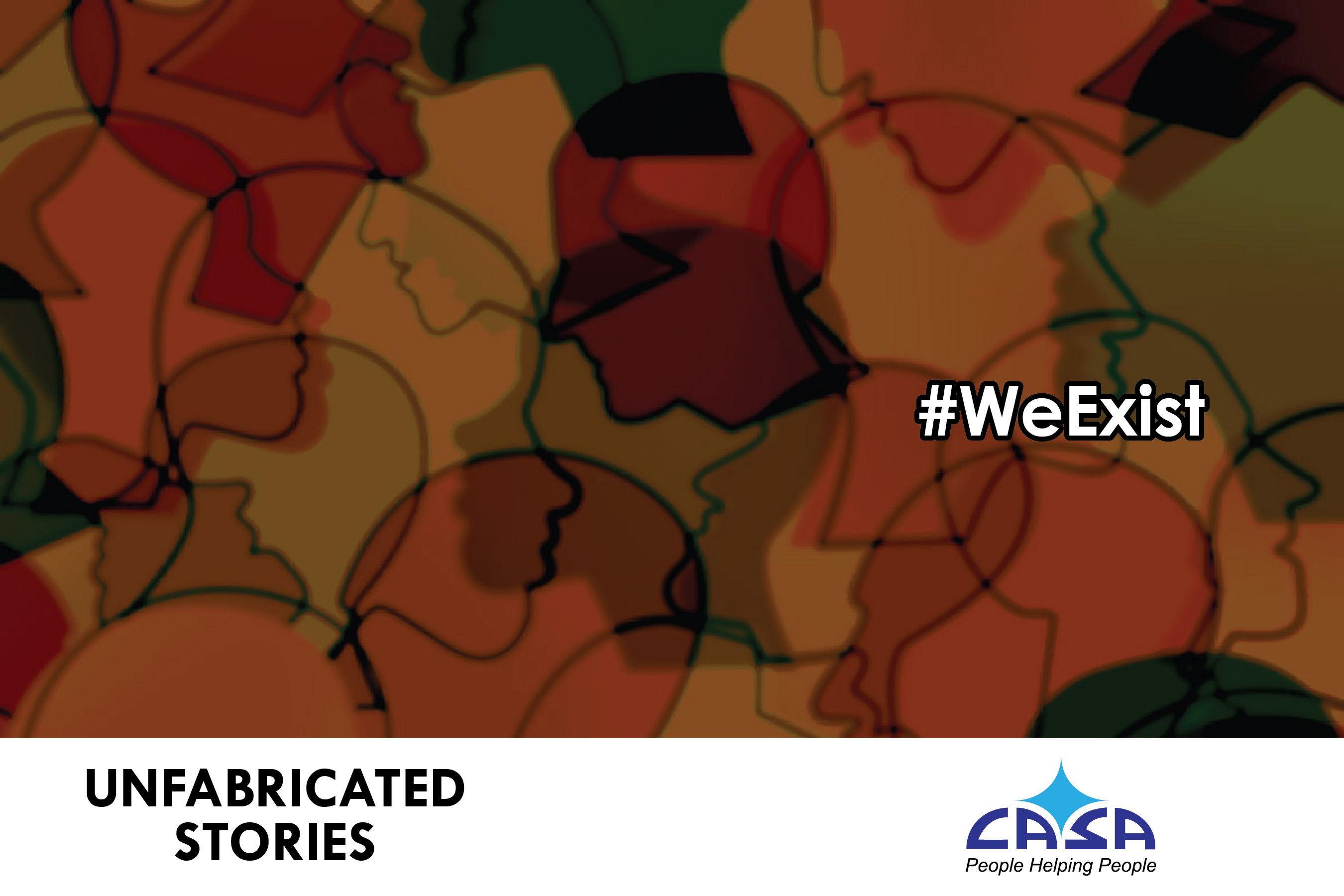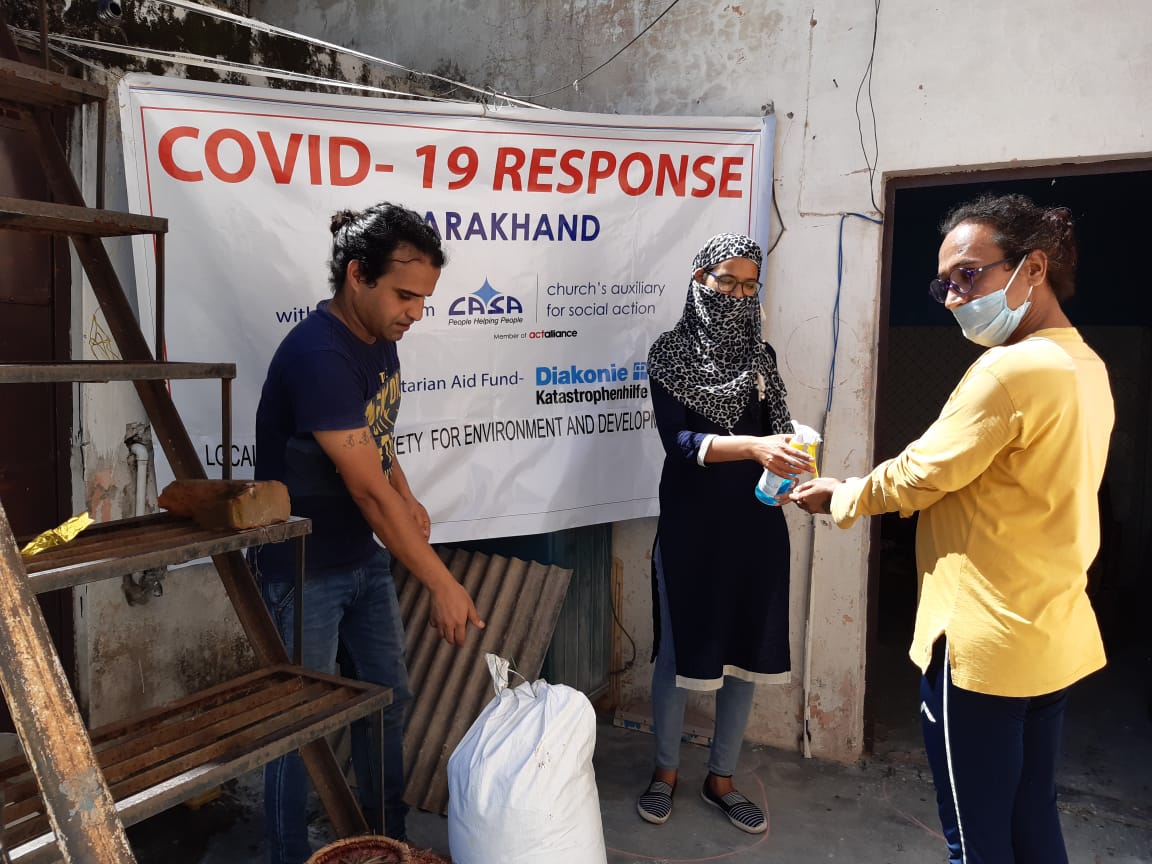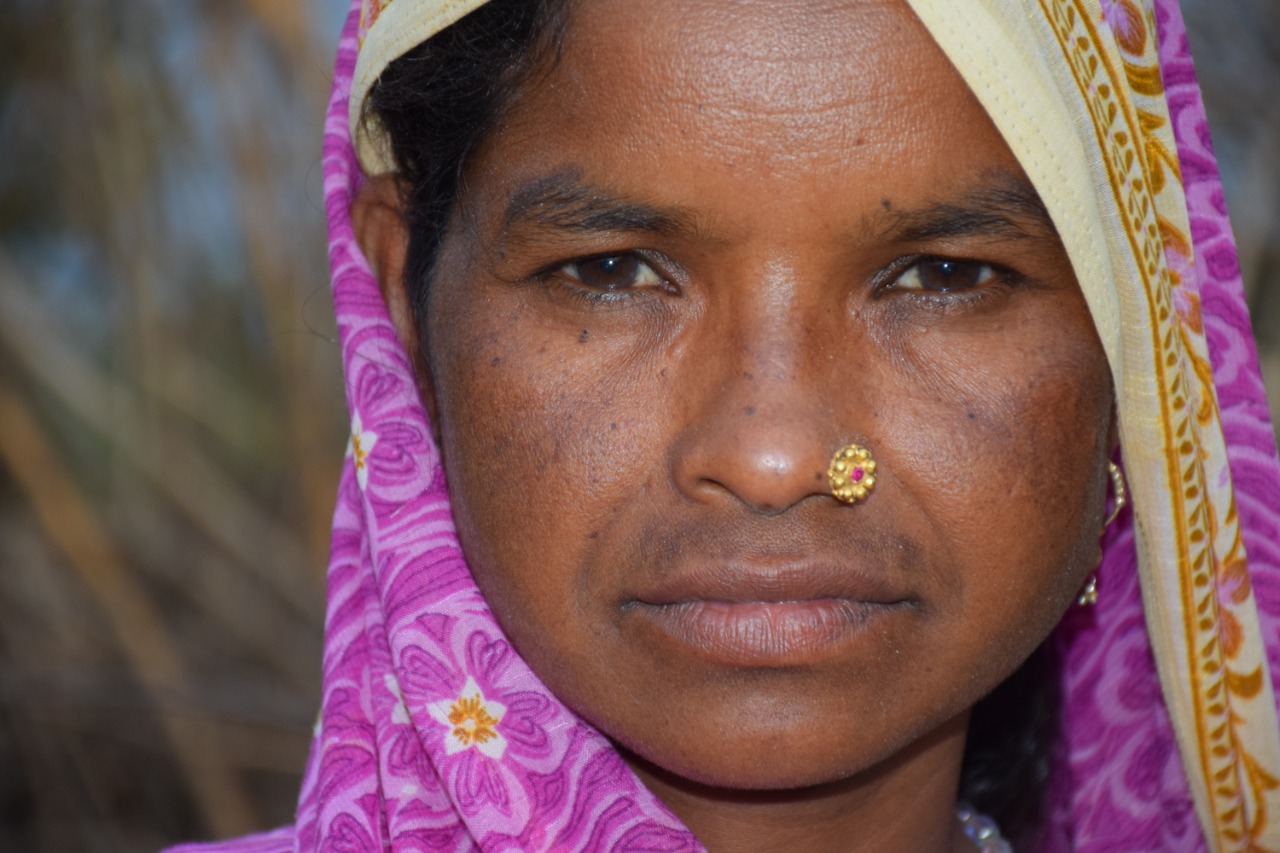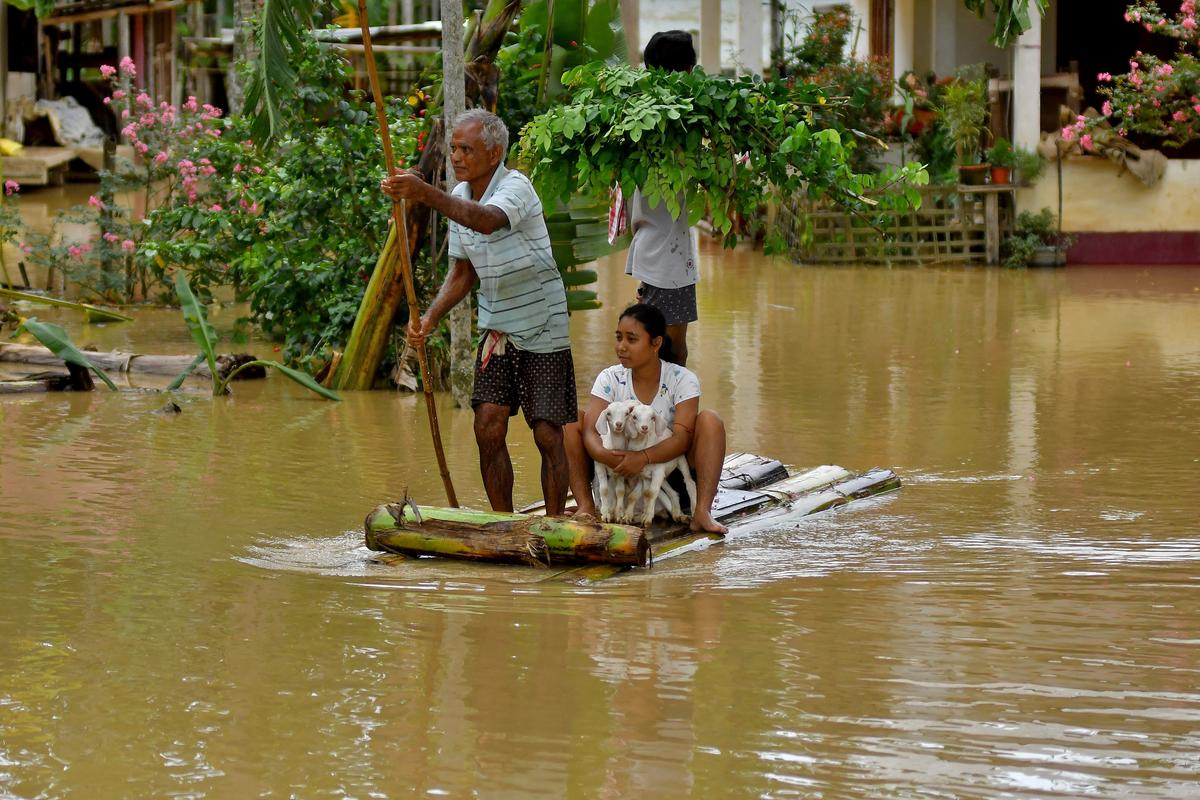CASA BLOGS

Seen through an Invisible Lens
Kareena (name changed) is a 30-year-old transgender woman living in Dehradun, Uttarakhand. Since childhood, she was subjected to apathy, verbal and physical abuses by her parents, siblings and other family members owing to her sexuality. “They thought that I had physical and mental defects, and spared no chance in harassing me, asking me to mend my ways.”
It was when Kareena was harassed by her classmate in school that she realized she had suffered enough. She discontinued her studies and leaving school in sixth grade, left her home and came to Dehradun. That was in 2014.
Out in the world to fend for herself, she soon experienced the prejudices revolving around a transgender more starkly. Renting an accommodation was a mammoth task; often she had to vacate the premises because she was a transgender.

Kareena receliving aid under CASA’s Covid-19 response
India houses a significant population of transgenders, around 4.88 lakh, as per Census 2011. However, the transgender community faces oppression and discrimination at multiple levels in daily life. They are ostracized from their families and the society. Being deprived of the opportunity to participate in any economic activity, most of them have to resort to doing odd jobs, begging or sex work to sustain them. Access to education, health care and public spaces is limited.
Kareena strived hard to sustain herself and aimed at being independent. She started working as a tailor; although, the earnings were meagre, she was satisfied with herself. Complications arose when she learnt that she was HIV positive. “I had lost all hope. Later, my transgender colleagues supported and encouraged me to be brave. I have accepted that I am HIV positive and have learnt to live with it.”
However, the Covid-19 pandemic disrupted her work. She hasn’t been able to secure a livelihood since the past four months. While the pandemic has affected different communities across the country, the transgender community has been severely affected. Several of them lack sufficient documentation like Aadhar card or ration card, as they require gender identification. They are thus unable to get access to any benefits from the government schemes. Many of the measures taken by the government to provide relief to the affected in turbulent times don’t include the transgender community within their reach.
Kareena couldn’t approach any social welfare schemes for aid as the State Social Welfare Department doesn’t provide assistance to socially and economically disadvantaged transgenders.
“I don’t have any life or health insurance because of my inability to pay premium. I was really anxious and was worried of how I could sustain myself.”
Taking cognizance of her dire situation, CASA, along with partner organisation provided dry ration support and a monetary support to 15 transgenders like Kareena in Dehradun, Uttarakhand. “I am extremely grateful to CASA who helped me during these difficult times, when no one else did.”
CASA believes that every human being is equal and should receive equal respect and support like every other person belonging to the society. Based on our wish for an egalitarian society, CASA endeavours to reach out to the vulnerable and disadvantaged members of the society and help them improve their lives.
– Written by Sudarshana Chatterjee, Intern, Communications
– Edited by Pankhuri, Communications Associate
 Previous Blog Post In the Pursuit of Acceptance
Previous Blog Post In the Pursuit of Acceptance Forest Dwellers & Forest – Based Livelihood
Forest Dwellers & Forest – Based LivelihoodFeatured Post

Mental Health Awareness in India: Addressing Key Challenges
8 Nov 2024
Mental health awareness is crucial in India, where millions silently struggle with mental health disorders, including depression, anxiety, and bipolar disorder. Despite growing recognition, India faces unique challenges in effectively addressing mental health issues. The stigma associated with mental illness remains a primary barrier. In Indian society, mental health issues are often misunderstood, leading to […]

Ensuring Girls’ Safety in India: A Path Toward Empowerment
20 Aug 2024
Girls’ safety in India remains a critical issue that has garnered increasing attention over the years. Despite various reforms and efforts from both government and civil society, challenges persist. From street harassment to domestic violence, gender-based discrimination continues to limit the freedom and safety of girls. While significant progress has been made in addressing these […]

The Connection Between Monsoons and Floods in India: An In-Depth Analysis
9 Jul 2024
India, a land of diverse climates and geographical features, relies heavily on the monsoon season for its agricultural and water resources. However, with the benefits of the monsoon rains come significant challenges, particularly in the form of floods. This blog explores the intricate relationship between the monsoon season and flooding in India, providing detailed insights […]


